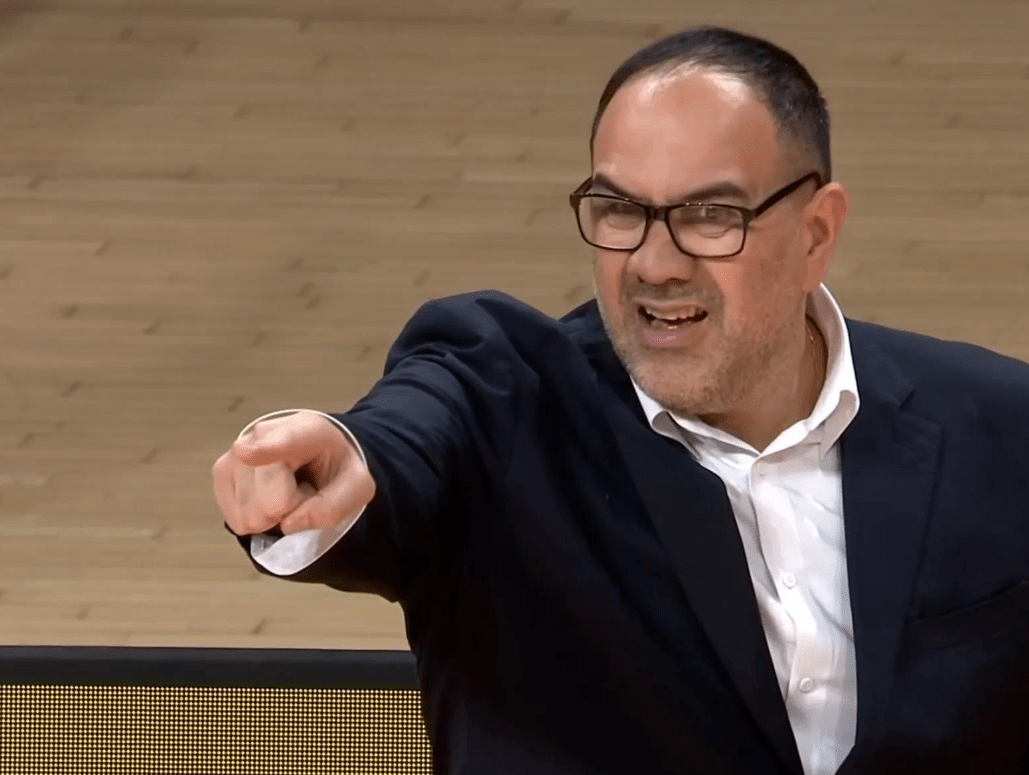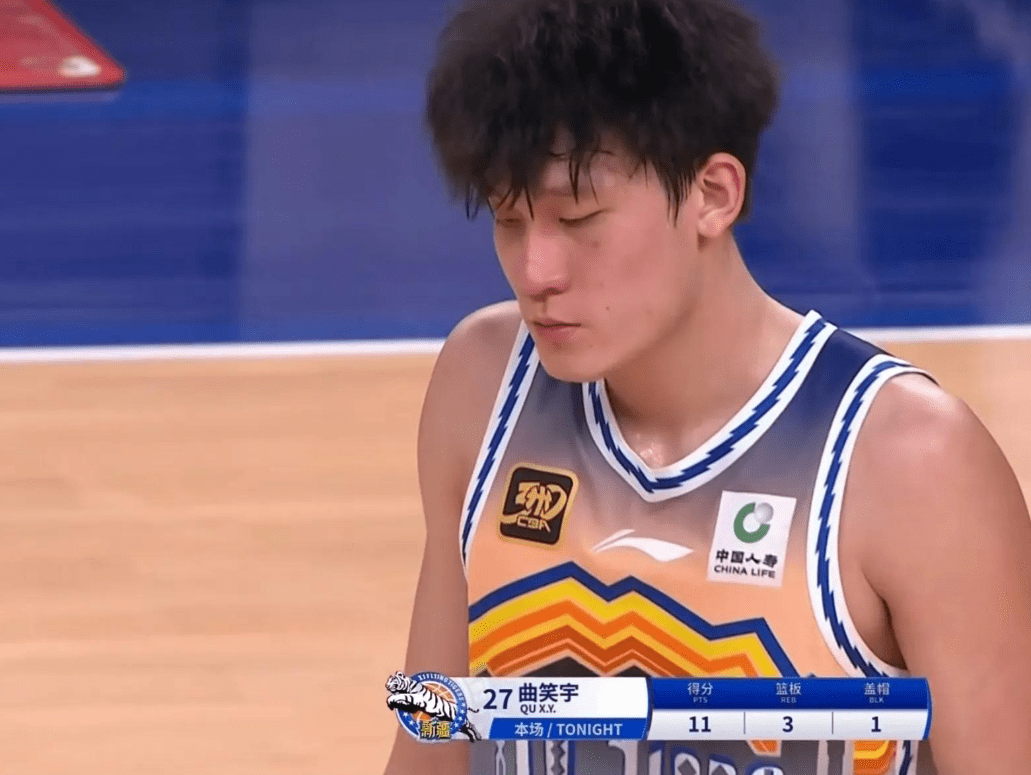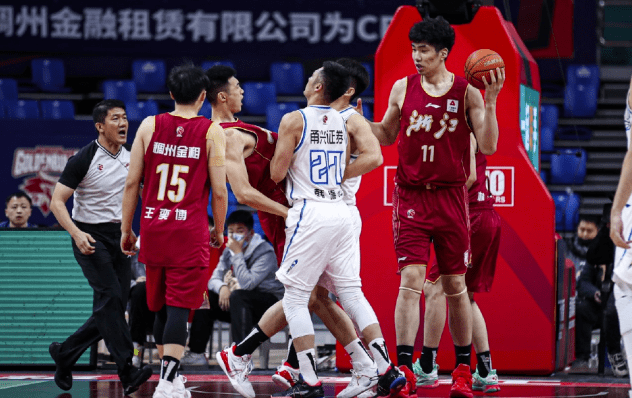Why do some young players with obvious talent struggle to get playing time in professional leagues? Coaches often have their "precious gems" as starters, but newcomers on the bench can end up sitting idly or being forgotten after prolonged periods of inactivity. Liu Shuangyu of the Zhejiang Chouzhou men's basketball team seemed to have gained playing opportunities this season through his own efforts, but upon closer inspection, it appears more like an opportunity that was "picked up" from the shadow of injuries. It was only after the unexpected injury of Yu Jiaho that this young center managed to seize the tail of fate and attempt to tear open a stage for himself. But is this a true, long-awaited outburst, or just a brief moment of brilliance due to an accident?
At the beginning of the season, for the 19-year-old rookie Liu Shuangyu, the CBA stage was like a "no-touching" barrier - the bench became his territory. This young player may have been full of passion and sweat on the training ground, but when he looked back at the game, head coach Wang Shilong had no intention of giving him a chance. Before Yu Jiaho's injury, Liu Shuangyu spent almost a month in a "practice partner" state, not even getting camera time during garbage time.

Then, life turned upside down like a spilled bottle of condiments. The team's mainstay in the paint, Yu Jiaho, suffered an unexpected injury, forcing coach Wang Shilong to recall Liu Shuangyu for emergency help. From a strategic perspective, the team needed a reliable substitute, and Liu Shuangyu was chosen perhaps not because of his outstanding skills, but because he was tall enough and fit the position. In other words, this was not trust, but rather a test of "having no choice."
But when the opportunity presented itself, even the smallest piece of cloth had to be worn as an overcoat. Liu Shuangyu's appearance on the court suddenly brought a burst of vitality, though still raw, he was desperately proving himself in every game. Despite a surprising start, he managed to kick open a crack of his own door.

In his first real opportunity, Liu Shuangyu was clearly very nervous. In the home game against the Shenzhen team, he only played 11 minutes, leaving behind 2 points and 2 rebounds on the stats board. Some might think that his performance seemed "raw," lacking surprises and falling short of expectations. But this was just the beginning, as the saying goes, "Everything is difficult at the beginning," how could one negate his potential just because of a stumble at the first step?
The second battle, away against Beijing BAC, was where Liu Shuangyu truly began to show his mettle. He played for 27 minutes, with his stats skyrocketing to 7 points, 10 rebounds, 1 assist, and 1 block. In that game, it was easy to see his tenacity and improvement in the paint, especially his performance in fighting for rebounds under the basket, fully utilizing his height advantage. Many fans were muttering after watching, saying that the kid could play, but just lacked opportunities.

Facing Jiangsu Kandiya next, Liu Shuangyu's performance was somewhat stable. He once again got 28 minutes of playing time, contributing 6 points, 6 rebounds, and 2 blocks. Although his scoring did not look impressive, as the team's "patch" in the paint, his steals and blocks at critical moments played a role, defusing several offensive and defensive crises, also providing the team with a sense of relief.
This trend abruptly stopped in the fourth game at home against Zhejiang Ningbo. In this match, his playing time was reduced to 13 minutes, with only 4 points, 2 rebounds, and 1 steal. Although his performance was still commendable, the reduction in playing time and the diminished role hinted at a looming signal of "returning to the bench."

Liu Shuangyu's four games, from data to performance, indeed showed some potential. Especially considering his excellent performance in a single 27-minute game, he has the ability, but there are also many shortcomings, such as a lack of scoring methods and insufficient physical confrontation ability. However, what's important is his presence on the court, not aimless running without achievement, but rather serving as a phased supplement to the paint.
However, while Liu Shuangyu received a slight turning point, another prodigy, Jing Tianyu, seemed to fall into the shadows of a black-and-white plot. Also considered a future star of the team before the season, Jing Tianyu has only appeared during garbage time this season, spending the rest of the time silently cheering by the water cooler.

Liu Shuangyu's opportunity came out of necessity due to injuries, but Jing Tianyu couldn't even get such an opportunity. This is not just a matter of personal luck, but also reflects the team's philosophy of using players: Coach Wang Shilong has always seemed conservative and suspicious, favoring veterans who "just get things done," while remaining indecisive about the enthusiasm of young players. As a common saying goes, "An unripe sapling would rather let its leaves fall than give it a hand first."
As Liu Shuangyu intermittently sought a sense of existence, the Zhejiang Ningbo team provided a valuable contrast.

The Ningbo coaching staff completely adopted "rotation" as the basic strategy, ensuring all 12 players on the team received stable playing time. Whether starters or substitutes, they relied on a rotating schedule to help young players accumulate extensive game experience while also preserving energy for the main players. The effectiveness of this approach is clear, with Ningbo's young players growing at a visible pace.
But Wang Shilong insisted on the conservative strategy of "strong players fixedly playing, weak players almost invisible," rarely seeing "newcomer experiments" even when Zhejiang Chouzhou was leading by 30 points, which seems overly stubborn.

Liu Shuangyu's growth story can actually be traced back to the U19 league familiar to many. He teamed up with Jing Tianyu, almost defeating the Xinjiang team in the final, becoming the "future frontcourt combination" eagerly anticipated by Zhejiang fans.
But after entering the professional league, the two fates unfolded completely different growth curves on the big stage. Even with few opportunities, Liu Shuangyu managed to climb the small steps of his career with difficulty, while Jing Tianyu seemed to have fallen into a vacuum of opportunities.

This is not just a matter of luck, but also the result of a lack of systematic planning for young players in professional clubs. Team decision-makers often only consider the immediate needs of current results, rather than allowing the development system to balance long-term growth.
Yu Jiaho's injury exposed the lack of depth in Zhejiang Chouzhou's frontcourt, and also revealed the situation of Liu Shuangyu, this "backup pawn." It's clear that without Yu Jiaho's injury, Liu Shuangyu might still have been left on the shelf, and this kind of "passive discovery" of young players has always been a seed of hidden danger.
Youth requires opportunities to nourish, and the potential of young players is always hidden in repeated tests of desperation. If coaches only focus on stable current results and ignore future possibilities, it will only lead the team into a narrower and narrower dead end.
(Disclaimer) The processes and images described in the article are all sourced from the internet. This article aims to promote positive social energy and does not contain vulgar or inappropriate content. If there are any copyright or personal infringement issues, please contact us in time, and we will delete the content immediately! If there are any questionable parts of the event, we will delete or make changes immediately after contacting us.